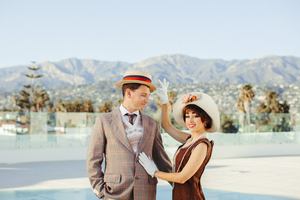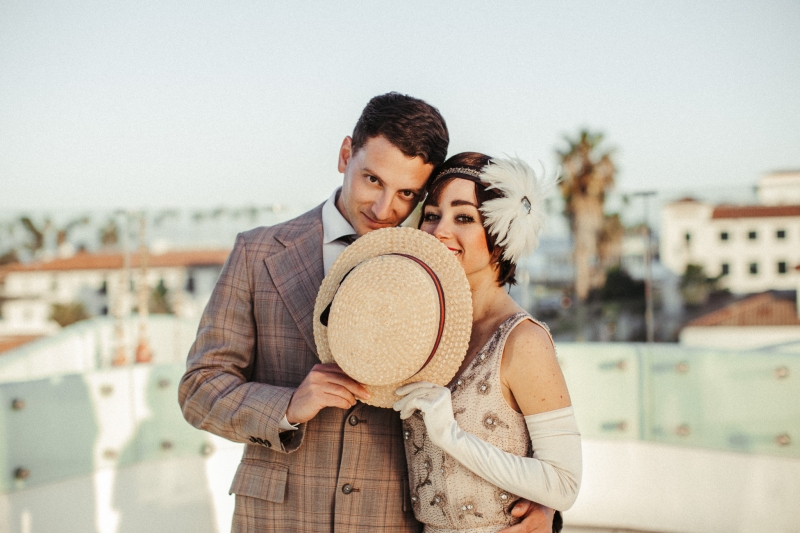Review: DON PASQUALE at Opera Santa Barbara
The drive-in opera played at the Ventura Fairgrounds

We still may be months away from a packed house in an indoor theater, but the arts have found ways to thrive despite current pandemic-based limitations. Opera Santa Barbara, for instance, has moved the opera outside, and turned it into a drive-in experience. Performers sing from a stage in the parking lot of the Ventura County Fairgrounds, and the show is projected on large overhead screens (including supertitles). The vocals and live orchestra music, conducted by Opera Santa Barbara artistic and general director, Kostis Protopapas, is played over a radio channel for in-car patrons. Is it the same as a standard theater experience? Not at all. For the most part you're watching a screen instead of the actual performers, so it's more of a drive-in movie feel than that of a live performance, but in this restrictive time, it's about as close as can be safely achieved. (And it's just nice to have somewhere to go!)

Don Pasquale, directed by Josh Shaw, is a comic opera that pits the vivacious young Norina (Jana McIntyre) and her lover, Ernesto (Matthew Grills), against Ernesto's blustering, elderly uncle, Don Pasquale (Andrew Potter). Pasquale has decided that if Ernesto and Norina wed, they'll be disinherited from Pasquale's riches. Pasquale, instead, decides to marry and produce his own heirs to replace his disobedient nephew and his disapproved fiancé. Norina and Ernesto, in league with Pasquale's doctor (Efraín Solís), hatch a marriage plot to teach the foolish uncle that he's too old to marry. Norina plays the part of the doctor's shy sister with whom Don Pasquale falls immediately in lust. Upon meeting Norina, Pasquale calls in the notary to marry them on the spot. No sooner are the signatures rendered that Norina changes personalities to become a holy terror, demanding an expensive and permissive lifestyle from her shocked new husband. Quickly deciding that he doesn't like being married, Pascuale promises to provide inheritance to Ernesto and Norina if he can only lose his newly acquired ball and chain.
It's an over-the-top, ludicrous plot that's played stylishly in a 1920s Santa Barbara, though I doubt the message of the show (that old men shouldn't marry) is understood as universal wisdom. The 1920s costuming (by Stacie Logue) gives the production a decorative flair, and setting the show in this epoch of frivolity matches the absurdity of the story. The actors play well off one another, giving this Gaetano Donizetti opera a comfortable feel with a lively beat and good comic timing.
Reader Reviews

Videos

